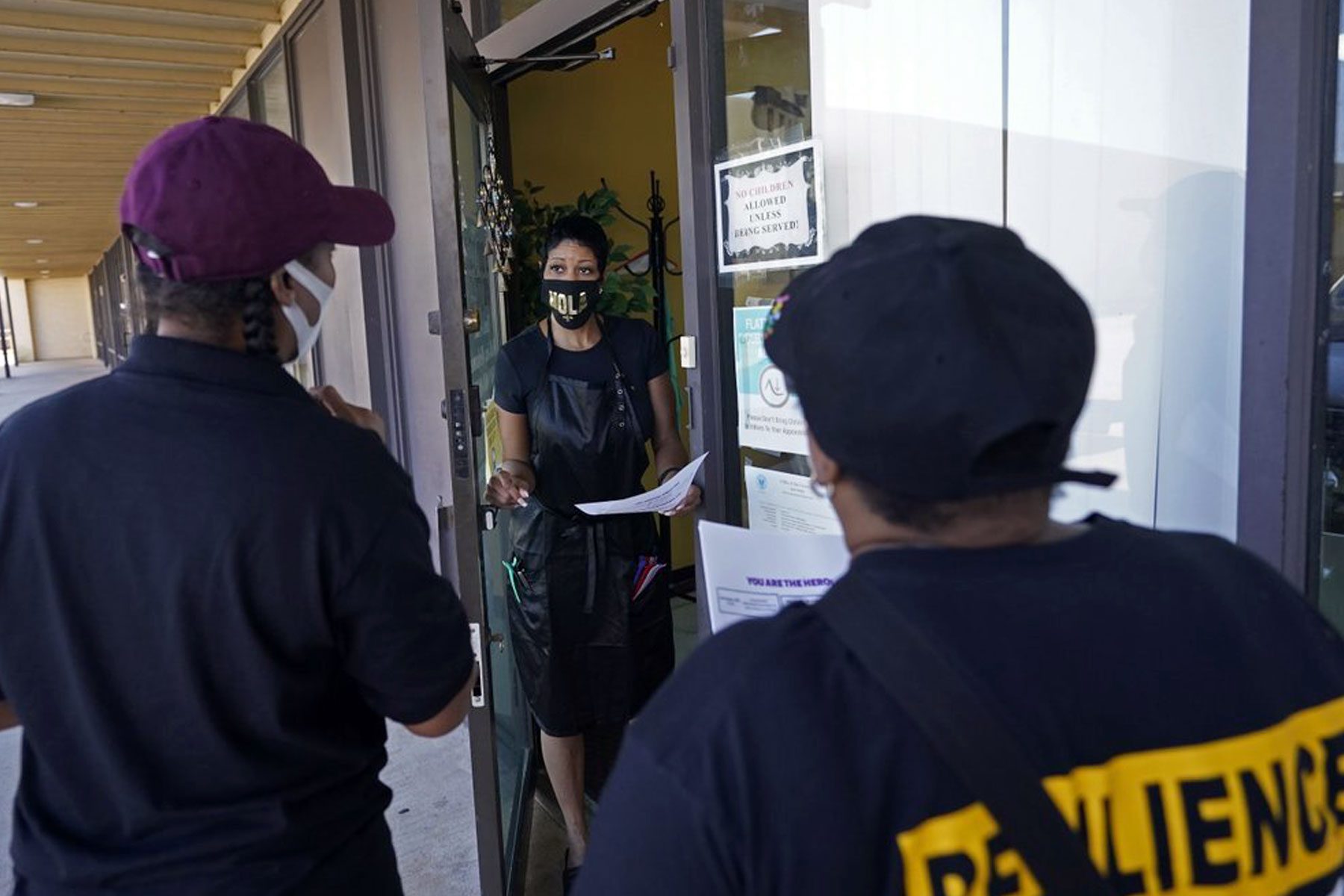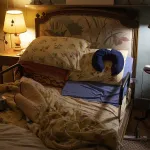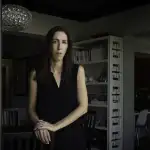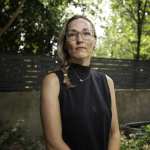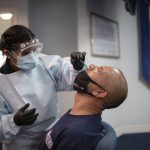There was a point a couple of weeks ago when every patient Dr. Oni Blackstock saw — back to back to back — said they didn’t want the coronavirus vaccine.
“Why are you people always pushing this?” one woman snapped at her the second she brought it up.
Deflated, Blackstock, a primary care and HIV physician in New York who serves primarily people of color, considered the growing complexity of the task ahead of her: The people who have not yet received the vaccine are dug in; if they’re holding out, it’s for a reason.
“People have just been so traumatized and so terrorized by this society to the point where people have so many concerns and worries and doubts about this being something safe,” Blackstock said. “To then believe that a system that has worked against them is now trying to help them? For me, it’s just really devastating.”
As the vaccination effort becomes more individualized, the frustration, exhaustion and pressure is weighing heavily on people on the front lines, who have already suffered a year of immeasurable pain and loss, but who also feel a deep responsibility to do the work it’ll take to reach the remaining 40 percent of the population that is eligible for a jab.
The vast majority of that labor — so much of it invisible — is now resting on the shoulders of women, especially women of color, and other marginalized people, experts say.
People of color have been disproportionately impacted by the pandemic in every arena, from health outcomes to economic ones. Black and Native American people have died from COVID-19 at 1.4 times the rate of White people, according to the most recent data, through early March, from the COVID Tracking Project. Nearly a year and a half out from the start of the pandemic, women of color continue to have the highest unemployment rates of any group: 7.6 percent for Black women and 6.7 percent for Latinas, while White women’s rate is 4.5 percent. And LGBTQ+ people, who are more vulnerable to complications from coronavirus because of underlying health issues and more likely to live in poverty, are among the groups contending with a potential wave of evictions once a moratorium expires in October that could put their livelihoods and health at risk.
Now, stopping additional devastation is up to the same people who have experienced the trauma of the pandemic. They’re rising up across the country to try to inch the vaccination effort forward where national campaigns, advertisements and even workplace incentives have fallen short.
It’s doctors like Blackstock, who are attempting to gain trust from communities who lost it long ago. It’s the caretakers, the ones who do it professionally and in their families, who have lived the losses caused by coronavirus first hand. It’s the mothers ravaged by the nation’s first women’s recession, who can’t see a return to any version of normal if they don’t have school or child care for their kids. And it’s the organizers, who are taking on this new dimension to their work because they know what it takes to meet people where they are.
“In our community, Black women are seen as a trusted voice because of our role leading families and leading movements,” Blackstock said. “We feel a responsibility to our communities to do this… we feel like a lot of this work is our life’s purpose.”
“It’s almost like we have this burden,” she added, “of having to address and mitigate the mistrust that we did not create.”
That burden is deeply personal for people like Autumn Phair, a 25-year-old master’s student in Seattle who is her mother’s primary caregiver.
Last year, her mom, Michelle Phair, spent a month in the hospital, some of that in the intensive care unit, when she contracted COVID-19. They spent Christmas apart. Like today, hospitals were overwhelmed, and days would go by before she got a call about her mother’s condition.
When Michelle survived, Phair thought surely her mother would want to get vaccinated as soon as the option was available to her.
But Michelle, a Black woman, pointed to how 600 low-income Black men were used in the Tuskegee Syphilis Study run by the U.S. Public Health Service from 1932 to 1972 to test how the disease progressed — but were never told they had it and weren’t treated for it. She talked about how Black people have felt tricked and bamboozled and led astray before. And after a life that has involved many hospitalizations and many treatments by specialists for various health issues, Phair fears her mother has developed a phobia around the vulnerability of that situation — of trusting her life to any one person. Or any one vaccine.
The vaccine, her mother told her, “is not going to save you. We are all going to die.”
Phair said that comment shook her. After all they had gone through, it had not been enough.
It’s almost like we have this burden of having to address and mitigate the mistrust that we did not create.
Dr. Oni Blackstock, physician who serves primarily people of color
But one day a few weeks ago, while on a routine pharmacy trip to Walmart, Phair’s mother suddenly said she would get vaccinated. The news of the Delta variant had started to rattle her. Right then and there, she got her first dose of the Moderna vaccine.
Regret set in quickly, and it set in deeply. “I don’t know if I should have done that,” Michelle told her daughter. Now, past due to get her second shot, Michelle is firmly back in the “no” camp. She won’t go in for it.
“I tried,” Phair wrote in an email to The 19th this week.
Phair feels a mix of resignation and anger. She’s considered life insurance and what kind of funeral service her mother would like. She now knows Michelle would prefer cremation. It’s the first time she’s ever planned for that loss.
Eve Rodsky, who has spent the past decade researching and writing about the invisible labor women take on, said the work that is taking place in homes like Phair’s and in workplaces across the nation has always been gendered. In her book, “Fair Play: A Game-Changing Solution for When You Have Too Much to Do (and More Life to Live),” she writes that women and marginalized people are the ones most often taking on what she calls “the civic engagement and social enrichment card.”
It was women of color who helped register voters at historic levels to flip states during the 2020 election and women who were the majority of those who stepped up to get vaccinated first in every state. The vaccination effort is a continuation of that work.
Some of it is existential. For the hundreds of thousands of moms who lost work and put their careers on hold because of the pandemic, vaccinations are a path toward returning to regular school and child care hours. They’re also doing that work in a micro sense, setting up coronavirus testing appointments when a school or kid’s soccer team requires it.
In the thousands of interviews she’s conducted with people for her book, Rodsky said that more often than not, women are the ones who take on the work when things fall apart. And they’re burning out because of it.
“We find that women take on the cards that you can’t control. So it’s very disruptive to mental health and cortisol levels and stress because we are dealing with unpredictable things,” Rodsky said. “That’s all COVID has been: unpredictable things they can’t do on their own timetable. The nature of invisible work has just exploded.”
Even outside the home, work being done by community organizations hasn’t always been paid. In Colorado, Out Boulder County, an LGBTQ+ advocacy organization, has been working all year to set up clinics with the county’s public health department to vaccinate members of the queer community. The group has also provided pronoun training and guidance on updating forms to be more inclusive. About 7,000 people came through the equity clinics they set up for the vaccine, many of those events run by volunteers who showed up to help encourage other LGBTQ+ people to get the vaccine.
In the first months of the year, “there were promises that we would be paid for our time, and it was taking a ton of time,” said Mardi Moore, the organization’s executive director. Instead of the public health department paying for the events, it was ultimately later funded by another organization, the Community Foundation of Boulder County. “You do the work because it’s the right thing to do, but I don’t get paid overtime,” she said.
As the months have dragged on, that labor has only become more challenging. Out Boulder County is now working with smaller LGBTQ+ organizations in areas around Boulder to help fund vaccination events, food for volunteers and other needs in order to reach people in outlying areas.
“What is so difficult is the fight to get people vaccinated. We are always noodling on what approach will work,” said Moore, who had just jumped off a call on how motivational interviewing — a technique used in the medical field to help patients who may be hesitant — might be one way to reach those who are still holding out. They’ll try that next, but, she conceded, “I think we are all tired.”
Some who are still trying consider it work that will serve future generations. That’s how LaTanja Silvester and Allie Young, who both lead organized vaccination efforts in their communities, talk about the mission behind the effort now.
Silvester is the Louisiana director for Resilience Force, a workforce development program that employed hospitality workers who lost their jobs during the pandemic and trained them to be community health workers. In New Orleans, their teams work to meet people who have not yet received the vaccine with information and an open mind. They’ve set up at grocery stores, beauty salons and parks. And they’ve seen success by reaching people directly, in their language, and by also offering referrals for other services, like help with unemployment insurance.
It’s about building trust and it’s also about the larger picture, Silvester said. The virus has devastated people’s lives in every sense, and she wants people to know that they understand that, too.
“This is about the future — their future, for their lives to go back to normal, but also the future of our kids who are now being thrown into the hospital system,” she said.
Young, a member of the Diné, or Navajo Nation, founded a nonprofit in the wake of the pandemic called Protect the Sacred that also builds on the idea that the vaccination effort is not just important now, but will also help preserve the valuable knowledge of elders and ensure cultures are preserved.
Young’s grandparents, who are in their 80s, were part of the inspiration for her push for vaccinations. Her grandmother had a hand in raising her, and her grandfather is a medicine man who is still passing along his traditional wisdom. Young’s mother works at Indian Health Services in Shiprock, New Mexico, and is among the many health care workers who have shown up to help run vaccination events in Navajo Nation after the virus drove some of the highest death tolls in Native communities this past year.
“When you think about the mutual aid efforts that popped up across the Navajo Nation very early on, they were all led by women. It’s very hard work. You put yourself out there and you are vulnerable and you put yourself in a situation where you may be attacked online. Just the emotional labor,” Young said. “That’s what it comes down to: Native women — we are all about community.”
They’ve been successful: Navajo Nation, once the epicenter of the pandemic, now has about a 70 percent vaccination rate. But Young said she is focusing her remaining energy on the next 30 percent. What has resonated with many people is that they have seen the devastation first hand.
“We don’t know one person who hasn’t been affected and lost a loved one,” Young said. “Our community is so close and family-oriented and community-oriented.”
At the individual level, the recent spike in cases due to the Delta variant has been a motivator for many people to restart conversations around the vaccine they had tabled earlier in the year with reluctant loved ones.
Cass Casarez, a coffee shop worker in St. Paul, Minnesota, said as they’ve felt the tangible and growing fear of watching more and more customers come in their shop without masks, working to get their mom vaccinated felt like one of the few things they could control.
Casarez’s mother has been skeptical of the vaccine’s efficacy, particularly after her sister experienced longer-term symptoms after receiving a dose. It’s a personal decision, and Casarez wants to respect that, but as someone who works face to face with customers every day, they know those decisions can put others in harm’s way.
“It’s frustrating that her decision impacts so many people and we see the stories about the family members, or the people who are on their deathbed with COVID, they say they wish they got the vaccine earlier,” Casarez said earlier this month. “I am just scared that’s going to be my mom.”
As a nonbinary transgender person, Casarez also knows they are personally more at risk for complications from the virus, even though they are vaccinated.
For weeks, the anxiety has built up. Then last week a text came in from their mom: “Well I have been mandated to get the vaccine, spiked a fever with both. The second shot had me down 4 days grr and still have to wear a mask. Not happy about that at all.”
Shocked, Casarez told their mom how glad they were: “I hope you know you getting vaccinated will help things get back to normal…. I know you had to do it, but thank you for getting it.”
The relief they felt is the reason so many have taken on this work, even when it feels like there isn’t much left to give after 17 months that have taken so much.
It was the lifting of the heaviest burden, Casarez said, “like serenity for me.”
